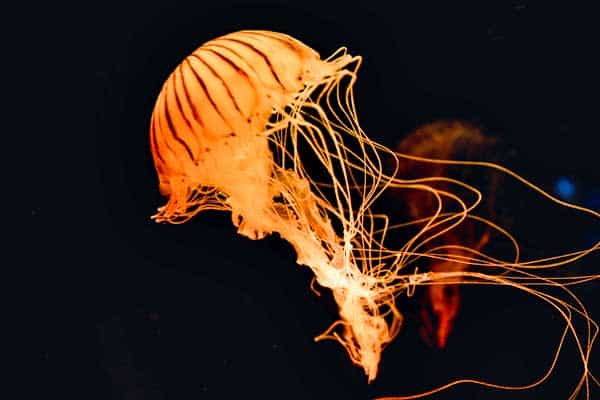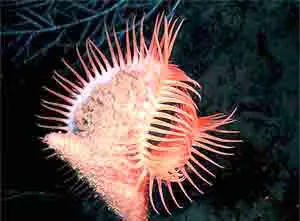Not all animals sleep. Some animals stay awake all the time or simply relax once in a while without sleeping. Let’s dig into this question.
Which animals do not sleep?
These five animals never sleep:
- Jellyfish
- Bullfrogs
- Insects (multiple)
- Sea Urchins
- Baby Dolphins
We will also look at some other species with very weird and different sleeping patterns.
Sleep in the animal kingdom looks very different than among humans.
Table of Contents
Let’s start by looking at how these animals manage to get away with not sleeping. There are different reasons for this unique behavior as you will see.
Let me dive in!
5 The Animals That Never Sleep
How do we know whether an animal is awake or asleep? There are actually several ways of knowing that.
We can look at brain activity for some species or we can look at eye movement to look for REM sleep. During the REM (Rapid Eye Movement) sleep we can observe the sleep state by looking at the eyes of the animal.
1) Jellyfish don’t sleep
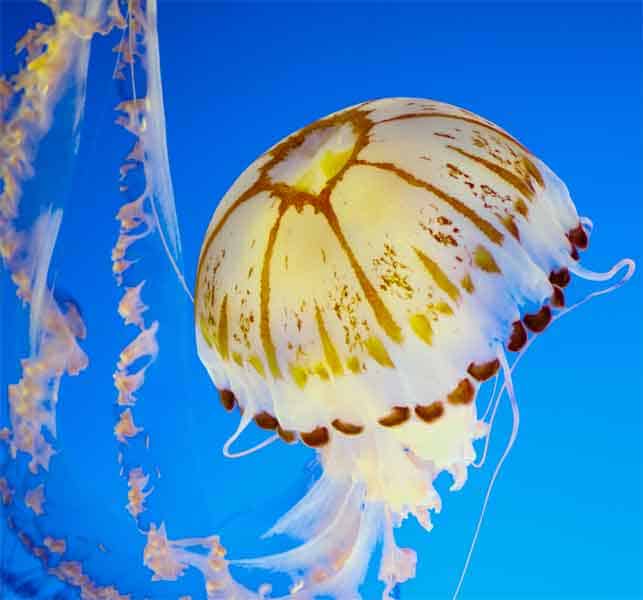
Jellyfish don’t sleep. In fact, they cannot sleep.
For a very good reason.
In order to sleep you need a brain and the jellies don’t have brains. That’s why they never sleep.
Instead of a brain Jellyfish have a more primitive network of tentacles and sensors to feed Zooplankton, tiny fish, and other small sea creatures into their mouth.
You can read more about the Jellyfish here. We also have a pretty lengthy article about all the animals without brains.
2) Bullfrogs
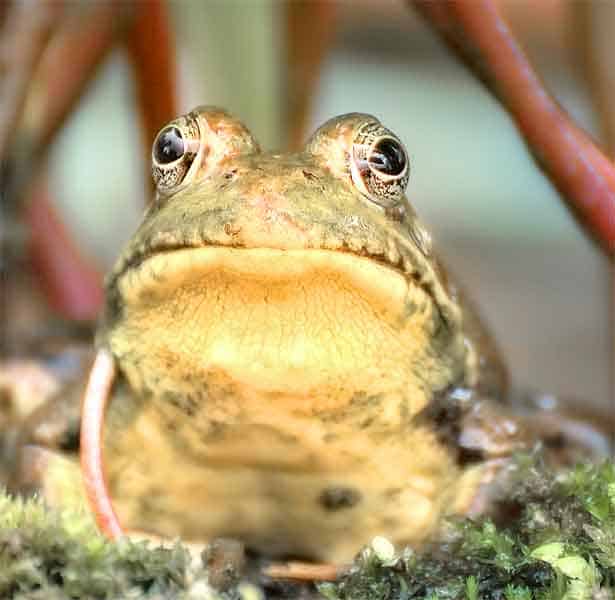
Bullfrogs are big frogs that never sleeps.
They are one of the few animals that have been tested in research in labs in order to monitor their behavior. And the zoologists found something amazing.
The Bullfrog show some remarkable behavior.
It is active during the night and it also doesn’t really rest during the day. In fact, they were not able to observe any form of dormant behavior at any point during day or night.
Scientists have tested these frogs and found that they were always alert and ready to react to stimuli.
But the zoologists haven’t been able to test their brain activity so they might have a special way of resting while staying alert.
Who knows.
3) Multiple insects
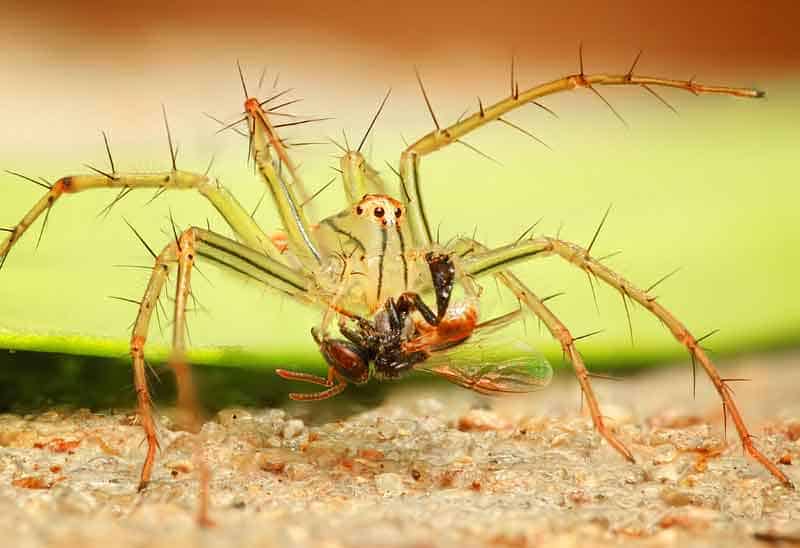
Insects and other arthropods do not sleep.
Instead, they enter a state called “torpor”.
According to Britannica.com, the torpid state is a state of rest where the body temperature is lowered a bit and it may last as long as the night.
Butterflies go into a state of torpor every night. And according to biologist Katy Prodic from Oregon State University in Corvallis, we don’t know if they sleep during this phase.
The torpid state is a dormant state that not only looks like sleep but also enables the animal to live without food for longer periods of time. Animals will go into this state in order to survive during the winter and other periods with very little food to eat.
So a period of cold weather will often trigger a torpid time for insects.
They also slow down their heartbeats during this time and they will not eat or get any nutrients during this time.
This is also what goes on when you find insects very passive on cold summer mornings. When the sky is clear during the night and the temperature lowers in the morning these little creeps will sit very passively in their torpid state.
This is a good time to observe these otherwise shy creatures.
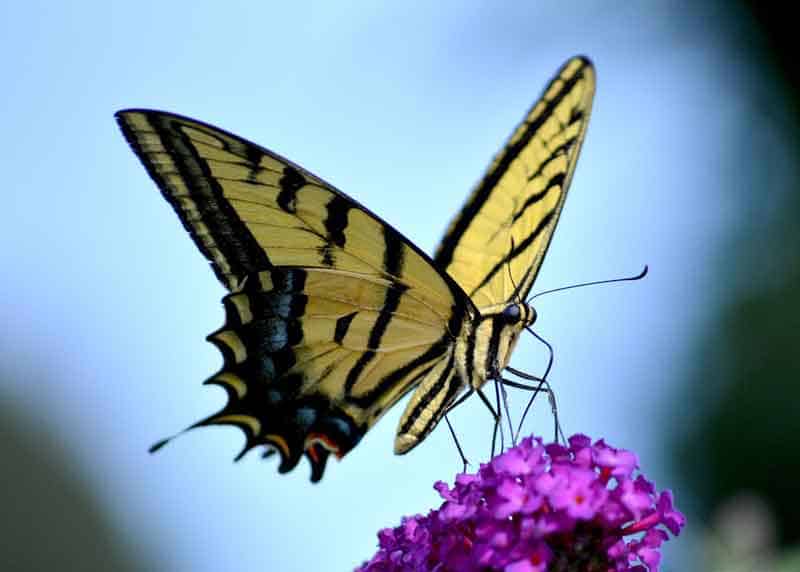
In some cases, animals go into hibernation which is also a form of torpid state.
Hibernation can last from weeks to half a year.
The Brown Bears will hibernate for around 6 months each year. They go into their dens during September/October and will stay there until around April. This is a very long period of rest where they are not eating, not pooping, and often they will only wake a few times during the period.
4) Sea Urchins
Sea urchins are another brainless animal. So they are also incapable of sleeping.
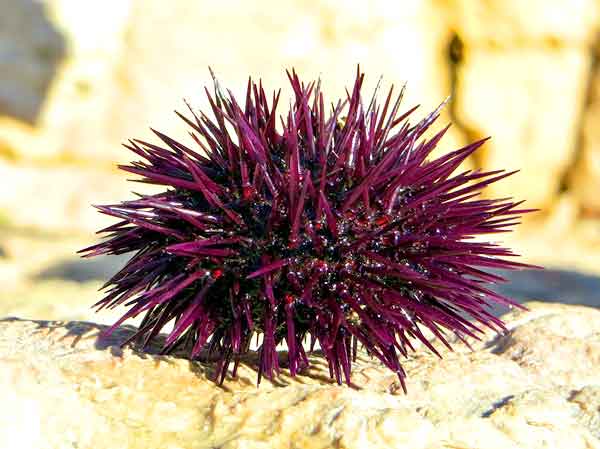
Sea Urchins can be very active with their many tiny spiky legs.
I was lucky enough to observe a couple of Sea Urchins a couple of months ago and they were very active. They will sometimes slow down and stay still for shorter periods but they are not sleeping.
They are simple creatures with a direct link between the moving legs and the spine.
Instead of a brain, the Sea Urchins have a simple nervous system that enables it to move and feed. It’s one of the very few brainless animals that can actually move around. You can see more here about the other animals without a brain.
5) Newborn Baby Dolphins do not sleep
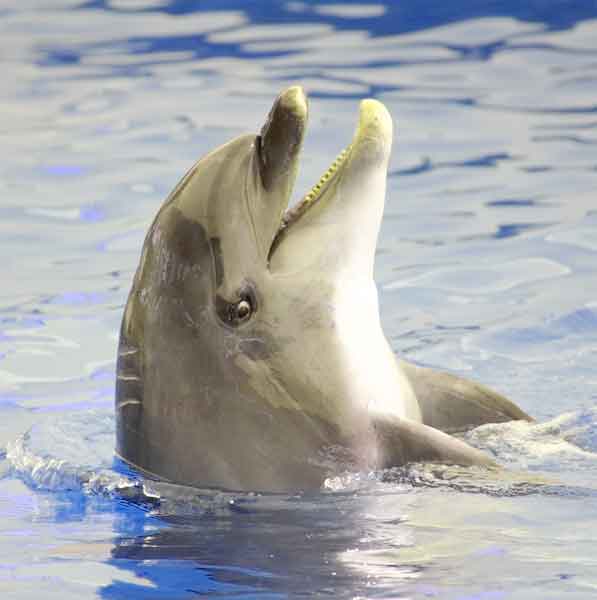
Baby Dolphins will not sleep during the first month.
They will stay very close to their mother and be alert and awake. The mother will also stay awake and the reason for this is probably to be aware of predators until the little ones are big enough to take care of themselves.
This research has been made by a team from the University of California at Los Angeles. They found that Dolphins have a very different approach to sleeping than most other newborn and new parents.
Normally, animals will sleep as much as possible in the time after birth. So this discovery is quite surprising!
The little Dolphins will come up to the surface 5-20 times per hour in order to breathe.
This doesn’t seem to stress the animals. The scientists discovered that the levels of cortisol (stress hormones) were normal so the animal was totally OK even though they did not get any sleep.
Humans and most mammals will quickly get very stressed out when they don’t get to sleep for even a few days.
13 Animals That Sleep Very Little
1) Giraffes
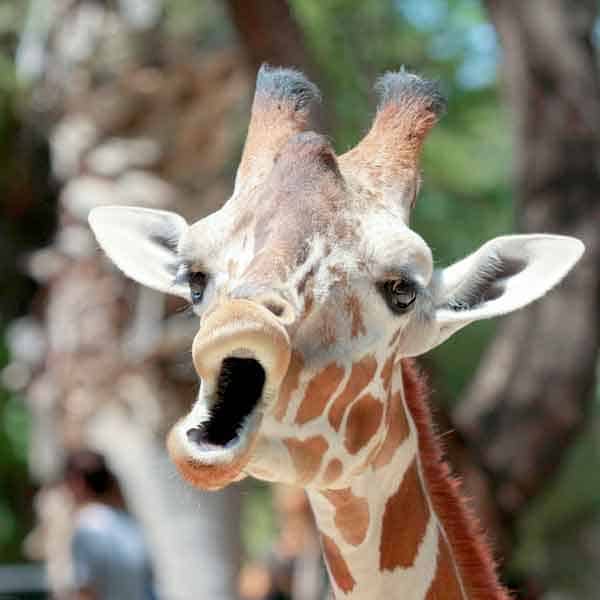
Giraffes are very special animals with their long necks and tall posture. So you can imagine that sleeping would be pretty hard.
And it is.
They might take a power nap now and then but they never fully enter a deep-sleep mode.
They can sleep a total of 30-40 minutes during the day by napping here and there. By staying alert they can make sure not to fall or get hunted by a predator.
They might eventually lean their neck backward to rest their head on the rump. In that case, the Giraffe will sleep for a few minutes. Other times, it will just nod quickly and be awake again after almost no time.
2) Elephants
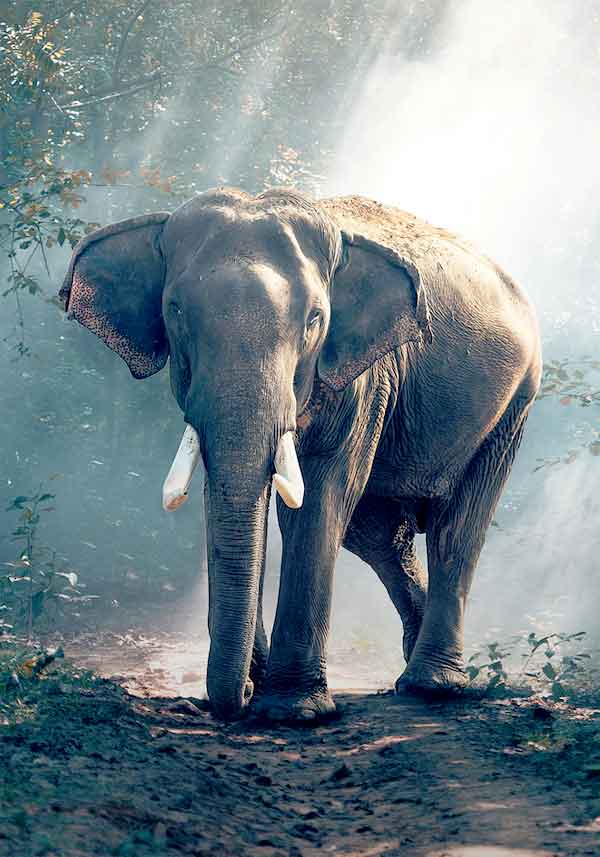
Elephants are also very special animals when it comes to sleeping patterns.
They will spend most of the day eating or trying to find food. After all, it takes a lot of work and effort to be one of the biggest terrestrial animals.
Elephants in a Zoo will sleep much more than their wild cousins. This is probably because they are safer and don’t need to spend as much time eating and searching for food.
But they might eventually lean up against a tree or even lay down on the side. Baby elephants are smaller (obviously) so they can easily lay down on the side or on the belly in order to take a nap.
3) Horses
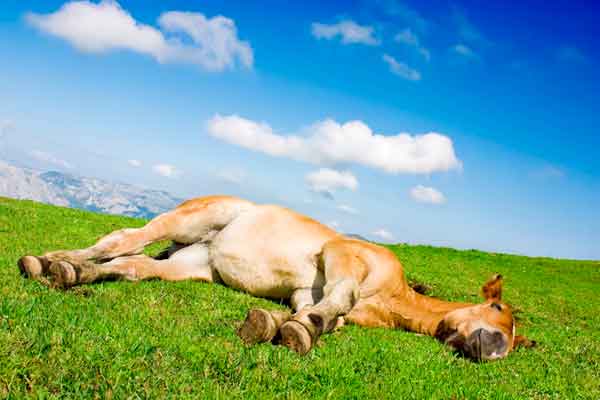
Horses are also known to spend very little time sleeping.
But they will eventually put in a few hours. And they can do so standing up or laying down. It’s quite interesting to watch a horse sleep, actually.
The reason horses prefer to sleep while standing up has to do with the way their body is constructed.
Horses cannot get up (or down) quickly. So in order to stay safe, they prefer to sleep while standing. That way they are always ready to move and stay alert to dangers.
Horses need very little deep sleep. This is the sleep we normally refer to as REM sleep. That’s where we are far away and it takes time to get into REM sleep which is crucial for humans in order to stay healthy and sane.
The sleeping time per day varies per breed.
But horses will in general sleep for a couple of hours every day. 2-3 hours of sleep is enough.
So they are much more efficient sleepers than humans!
4) Whales
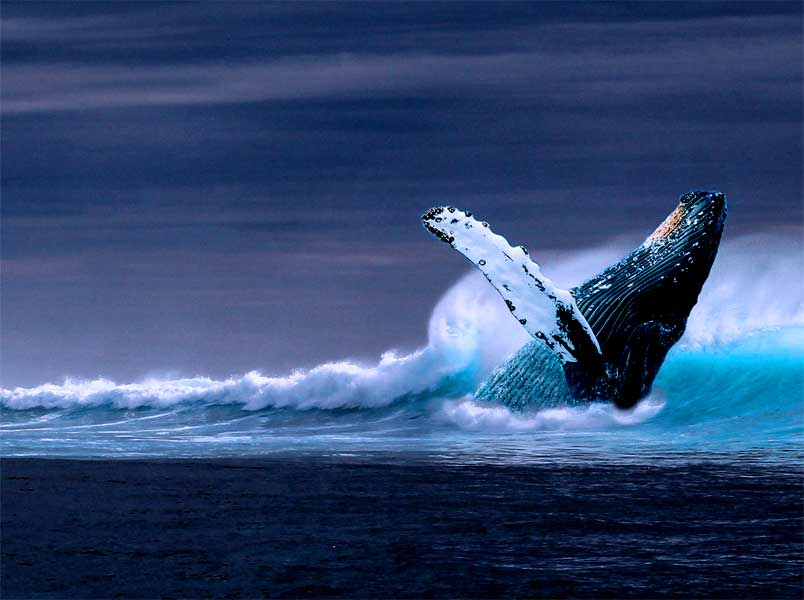
Other animals that hardly sleeps are whales.
Whales will only sleep around 1,5 hours per day. When they sleep, the body temperature is lowered. So it’s important that they do not sleep too much each time in order to stay warm.
So the sleep is spread out over the day and divided into small 10-15 minutes breaks.
The temperature drops during the sleep phase simply because the Whale is not moving.
Another interesting fact about whales is that they are actually alert while sleeping. That sounds weird but it’s true. They will only use one part of the brain for sleeping and the other part of the brain is still working to some extent.
Let’s take a closer look at what is going on here.
Some Animal Can Stay Awake And Sleep (at the same time)
This is called unihemispheric sleep patterns.
It is also referred to as “asymmetric slow-wave sleep”. But it is not really a state of sleep as we normally think about sleep.
It’s a very special form of sleep where one part of the brain will stay alert while the other part of the brain is sleeping.
As we looked at above, this is a behavior we find among large sea creatures like dolphins and whales.
The animals will out half of the brain to sleep while the other part is used for navigating, swimming, and in order to be alert to any potential predators.
The unihemispheric sleep patterns enable them to close one eye and keep the other one open.
They need one eye open in order to navigate.
This is a pretty amazing way of sleeping that we also find outside the aquatic animals. We also find this sleeping pattern among terrestrial and some bird species.
Birds use unihemispheric sleep during long flights
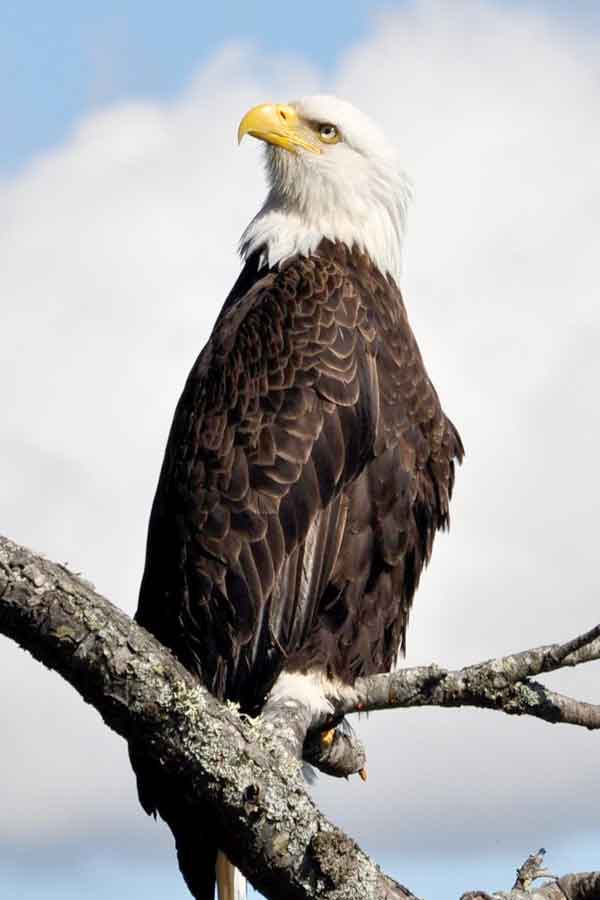
Birds can go into the unihemispheric sleep state while flying long distances.
They will do so when they migrate in order to stay in the air while resting. This enables them to make fewer stops and get to the destination much faster.
It’s hard to measure and do research on birds that are in this state during flight. Mainly because they are airborne and they would stop resting if biologists were to interfere during the long flights.
Sources: bbc.com, Britannica.com, newscientist.com



